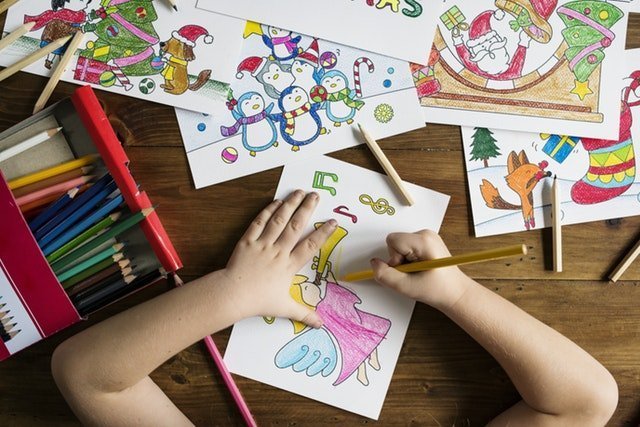A parent’s role in child development is often underappreciated by many, but there is little doubt that it is an essential component to raising happy, independent and successful kids that will go onto thrive as future adults.
As children develop from infants, all the way to adulthood, they go through a sequence of developmental milestones. Through this process of growth and development, parents are more than just caretakers and providers, they also have a huge impact on their kids physical, emotional, intellectual and social outcomes.
A parents role is incredibly diverse and continues to evolve as children grow. Everything from the basics of learning to walk and talk, to understanding how to manage finances are heavily influenced by the type of parenting we receive.
Although there is no denying that our development is influenced by other factors such as our social group, education, culture, society, and the media. There is also no doubt that the foundation skills and parenting set down by our parents have a lasting impact, for good or bad, and will often be the lessons we refer back to again and again throughout our lives.
It’s for these reasons that many parents understand the importance of their role in their child’s development. With that in mind, here are some of the most important things to consider to make sure all areas of your child’s development are nurtured:
Parents Role in Physical Development
A child’s physical development is most obvious in the early years when they grow at a rapid pace and become increasingly mobile. Improvements in fine motor skills, coordination, and balance are also increasingly noticeable.
This increased physical activity doesn’t just have physical benefits either. As well as increased muscle mass, tone, and bone density, this increased physical activity is a sure sign of accelerated cognitive development too. And through this process, further exploration and interaction with the world around them is now possible, which only helps their brain development even more.

After the toddler years, this process of growth and physical development becomes less obvious, but in reality, during childhood, it never stops. It eventually picks up the pace again in the teen years when kids transition to adulthood through the process of puberty.
The speed of progress a child makes can be positively influenced by their parent’s attitude to both physical activity and exploration. When it comes to physical activity, parents can offer encouragement and support in multiple ways and by doing this the bond between parent and child can be greatly improved.
It’s also important for parents to promote a healthy, balanced lifestyle to their kids, as this can help them maintain a healthy body weight and greatly reduce their risk of diseases associated with excess body weight. Things like ensuring your child(ren) have regular dental check-ups and are up to date with vaccinations is also important.
How Can Parents Promote Physical Development?
- Support & Encourage Your Child to Explore
As your child is developing physically, you can offer your support and encouragement along the way. This will make them feel safe and secure in their environment. For example, if they are just beginning to take their first steps, hold an object out to encourage them to stand up and support themselves.
As they grow older, this encouragement can still be of great benefit as they learn to swim, to ride their first bike and even learn to tie their own shoelaces.
- Limit Screen Time
In the age of the internet and technology is more important than ever for parents to limit their child’s time spent using tech. The American Society of Pediatrics recommends no more than 2 hours of screen time each day.
Instead of video games, apps and TV shows, encourage kids to play with real toys too, such as puzzles, educational games and outdoor toys like ride-on vehicles, bicycles, and scooters.
- Take Advantage of Local Outdoor Activities
A great way to motivate kids to get outdoors is by example. As a family, take them to areas of natural beauty, such as national parks, nature reserves, and other local monuments. These activities are a great way to show kids the joy of exploring the outdoors, even though it can be a physically demanding experience.
- Join a Kids Club
Karate, judo, football and sports clubs are a great way to get kids active and developing themselves physically. The best part is that these types of clubs also offer children the opportunity to socialize, compete and who knows? It may even turn into a lifelong passion.
- Let them Play with Arts and Crafts
Drawing, painting and making things with their hands help kids develop important skills such as grip, hand-eye coordination, and fine motor skills.
Recommended reading:
- Positive Parenting Solutions Review
- Positive Parenting Courses
- Free Online Parenting Classes For Dads
- Uninvolved Parenting Styles
- Essential Character Traits for Kids to Win
- Roles of Parents in Child Development
Parents Role in Social and Emotional Development
Social development begins right from birth, with nothing more than simple eye-contact between the infant and the primary caregiver, which is typically the mother. This eye contact bonding also occurs between infant and father, siblings and the rest of the family.
As the child starts to utter their first words and talk, the more complex social development begins. Children will gradually begin to increase their vocabulary, articulate more complex words and learn how to regulate their emotions.

As children begin to communicate more and more, it’s increasingly important for them to have positive interactions with their parents. This means practicing positive parenting techniques, empathy, and age-appropriate discipline strategies. Over time, these techniques will teach them how to respond appropriately to different situations and provide them with a range of coping skills that will help them better regulate their emotions.
Ensuring your child develops healthy self-esteem, self-identity and character traits are all also very important for successful and positive social interactions. From a parents perspective, this means ensuring they receive positive feedback and support from you, as this will encourage them to communicate their concerns openly and ensure they maintain the confidence to stay curious.
For example, if they tell a joke or perform a dance, then the right response is to smile and encourage them, even if they don’t always do so well. This level of support will encourage them to continue until they succeed, while a negative response will likely make them shy away from trying again in the future.
How Can Parents Promote Social & Emotional Development?
- Encourage Social Interaction
All throughout their childhood, you should encourage your child to socialize and interact with others as much as possible. You can do this by ensuring they have plenty of opportunities to mingle with others their age. Local youth clubs, after-school clubs, and other kids clubs are all great places to ensure your child gets a lot of social interaction.
- Affirm Good Behavior & Practice Empathy
When your child is well behaved or does something positive, reward them with lots of praise, encouragement, and affection. This will affirm good behavior and encourage them to repeat this type of positive behavior. Equally, if they are upset or seem to be having issues processing emotions, which is often expressed as anger, offer them empathy and help them understand through simple explanation.
- Practice Positive Parenting
Children thrive both emotionally and socially when they receive empathetic and positive parenting. This a parenting style that focuses on teaching discipline strategies that build your child’s self-esteem, while at the same time correcting their misbehavior.
- Coach Your Child Regularly
Before your child finds themselves in a new and unfamiliar social situation, it’s often useful to coach them on how to behave and what to expect. This will help them be aware of the expectations you have of their behavior and how they should behave around others.
If your child ends up acting inappropriately, explain why this is wrong, how it impacts others and what the correct way to behave in this situation would be.
Parents Role in Intellectual Development
Making sure that a child’s intellectual development meets academic expectations is essential to ensure they perform well in their education and excel in a range of other activities that require a foundation level of important skills and abilities. From infancy and all the way through toddlerhood, this includes teaching them basic counting, helping them to recite the alphabet, as well as showing them how to recognize simple shapes and colors.

As kids continue to grow and mature, it’s essential that parents continue to provide lots of encouragement and support as they continue to learn the basics and tackle more challenging academic subjects such as Maths and English. Parents can easily do this by providing them with educational and interactive games, puzzles, books, and software. On a more hands-on level, parents can also help actively support their kids by helping them with their homework, that doesn’t mean doing it for them, but being ready to offer assistance if they face a barrier or get “stuck”.
How Can Parents Promote Intellectual Development?
- Make Learning Fun
Kids love to play and have fun, so one of the most effective ways to support their intellectual development is by providing them with activities that are both fun and educational at the same time. That way they aren’t likely to get bored and likely to relate learning to having fun, as opposed to the more traditional methods, like sitting down and reciting numbers, parrot fashion.
For example, there are lots of games, toy, and apps now available that are designed to be educational. That includes toys like science kits, kids microscopes and even programming games where kids get to create their own video games.
- Introduce Kids to Music
Learning musical instruments as long been associated with a whole host of cognitive benefits, including faster reaction times, improved memory as well as maths, reading & comprehension skills. So it’s a definite benefit to get your kids learning and reading music as early as possible.
Kids can start with basic toy musical instruments and gradually work towards a more professional set-up. When a child starts to read music, they must learn to understand new concepts including beats, scales, and notes, which is a key transferable skill that will help them read in a logical order and help them to understand other abstract concepts in the classroom.
- Encourage Your Kids to Learn & Track Progress
You can help your kids with their homework, read books with them before bed and play interactive educational games that will really help stimulate their minds and solidify abstract concepts that can be difficult for kids to grasp.
Throughout this process, make sure to encourage your kids as much as possible by asking them questions about what they are reading, as well as the new concepts they have learned.
- Provide Inspiration & Motivation
Sometimes all kids need is a little motivation. A great way to achieve this is by taking them to the local library, museums or by watching documentaries and TV shows about the subjects they are currently learning. This helps kids better relate to difficult concepts and subjects, that may otherwise be quite difficult for kids to understand or relate to.